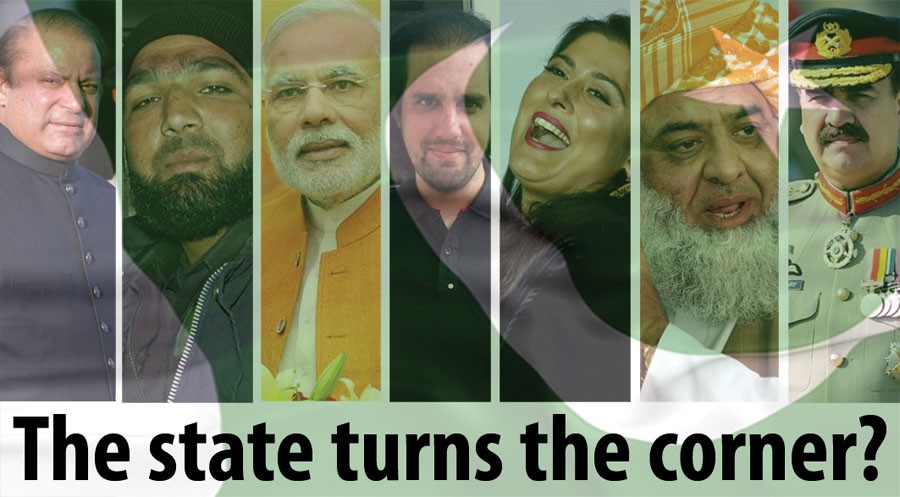
Analysing the impression that the state has changed its course on issues of extremism and terrorism

People in this country have been direct or indirect victims of a long spell of terrorism. Many have suffered from extremism latent in the laws of the land. All dispassionate analyses have always placed the blame for this violence, shaping the society as well minds, on none other but the state itself.
Hatred for the ‘other’ begins with textbooks, is perpetuated in the media and through a national discourse. Jihad has been followed as a useful foreign policy tool for too long, till the time it got out of everybody’s control.
Every single incident of terrorism could have been a moment of soul-searching, leading to some action against the evil within. But, for this country, the real turning point came when the perpetrators killed more than a hundred innocent school children in Peshawar in December 2014. Even after the implementation of a National Action Plan and continuing military operations, we still experience a terrorist attack virtually every week.
But certain actions by the state and the government have forced people to think if the state has actually turned the corner. A self-confessed murderer got a death sentence but people remained skeptical about it being implemented. So when the news of Mumtaz Qadri’s hanging came about, it was seen as the establishment of the writ of the state.
The government has been taking some steps in favour of women. The religious right, whose street power all others have dreaded all along, too has shown its meek protests (the television has been literally boycotting them). Yet, the euphoria about the state having changed its direction is a little over-read it seems (some even see the return of Shahbaz Taseer as a success of the state).
In our Special Report today we want to analyse this assertion that the state has changed its course. What about the composition of the Pakistani state itself and whether this fight against terrorism has strengthened or weakened democracy in this country? What about the constitutional and fundamental rights of the people? What about the powers of the normal courts to adjudicate? What about the elements within the religious right that the state might still want to hold dear? What about Asia Bibi who is still languishing in jail after all these years?